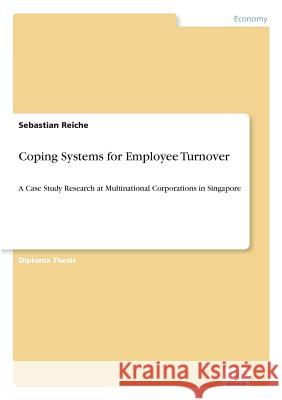Coping Systems for Employee Turnover: A Case Study Research at Multinational Corporations in Singapore » książka
Coping Systems for Employee Turnover: A Case Study Research at Multinational Corporations in Singapore
ISBN-13: 9783838663869 / Angielski / Miękka / 2003 / 274 str.
Coping Systems for Employee Turnover: A Case Study Research at Multinational Corporations in Singapore
ISBN-13: 9783838663869 / Angielski / Miękka / 2003 / 274 str.
(netto: 723,09 VAT: 5%)
Najniższa cena z 30 dni: 759,24
ok. 16-18 dni roboczych.
Darmowa dostawa!
Diploma Thesis from the year 2002 in the subject Business economics - Trade and Distribution, grade: 1,0, University of Hannover (Wirtschaftswissenschaften), language: English, abstract: Inhaltsangabe: Abstract: As business activities become increasingly global and cross-nationally intertwined, human resource management is no longer defined by national boundaries. In particular, multinational corporations (MNCs) face the challenge of managing their globally dispersed work force effectively. Yet, the field of international human resource management (IHRM) remains an understudied domain, lacking substantial empirical and conceptual research. Also, a prevailing focus on quantitative data suggests a need for deeper qualitative investigations, which allows a more profound assessment of the context in which IHRM unfolds. By addressing IHRM at MNCs, the current empirical work contributes additional scientific insights into this domain. In this respect, the author has selected an approach of inductive comparative case study research, mainly based on qualitative data, that enables the generation of theory through an iterative, data-driven process. This method has been applied to investigate IHRM because it is particularly fruitful when examining new and narrowly developed scientific fields as well as considering contextual conditions. Thus, a multiple case study was conducted through exploratory and semi-structured interviews with managerial employees at six western MNCs which maintain their regional headquarters for South-East Asia in Singapore. The initial guiding objective was to provide a more thorough understanding of the forces that influence IHRM. Due to the exploratory nature of the research set-up, this broad focus has narrowed during the conduct of the study and the subsequent data analysis. Based on the interviews, employee turnover emerged as a key concern for international organizations operating in Singapore. Although a tight local labour market has led to the











